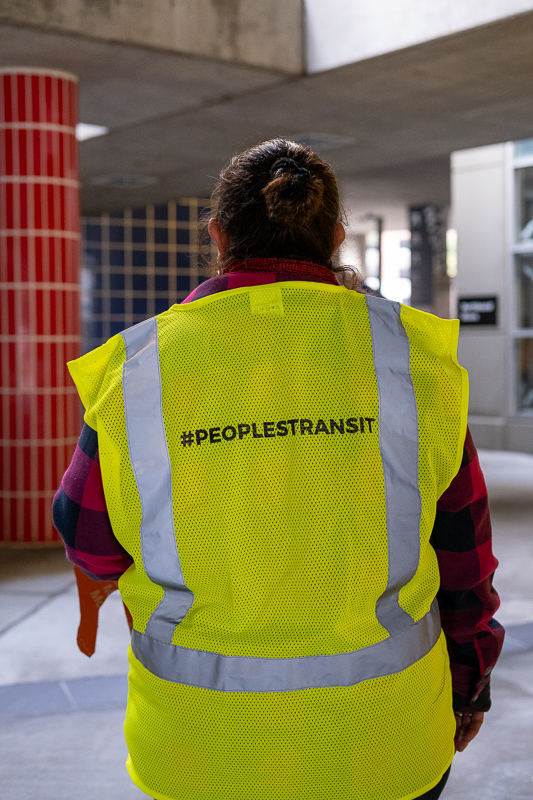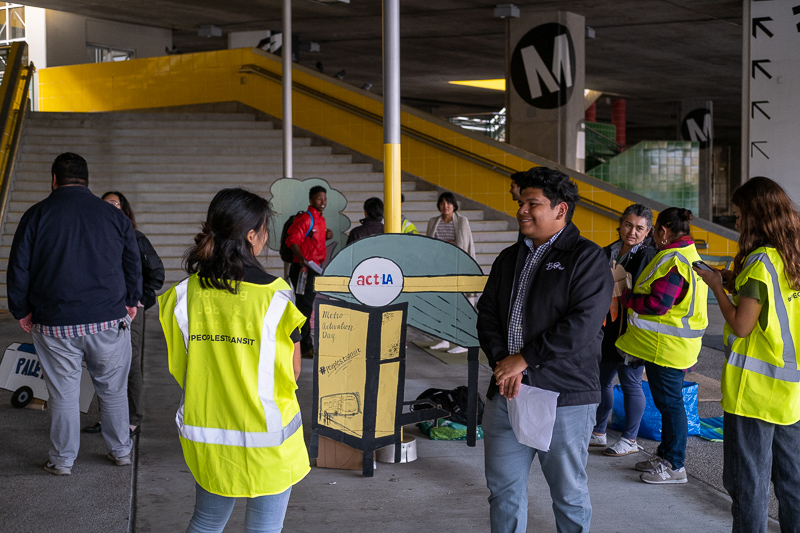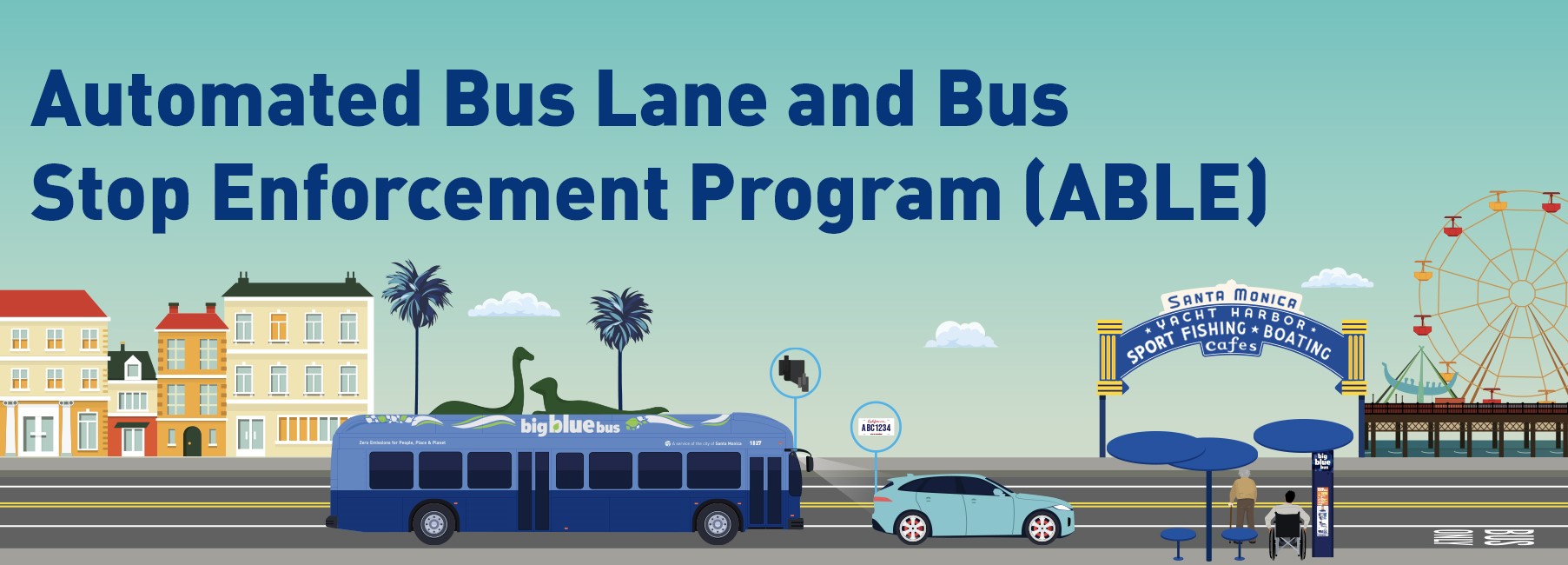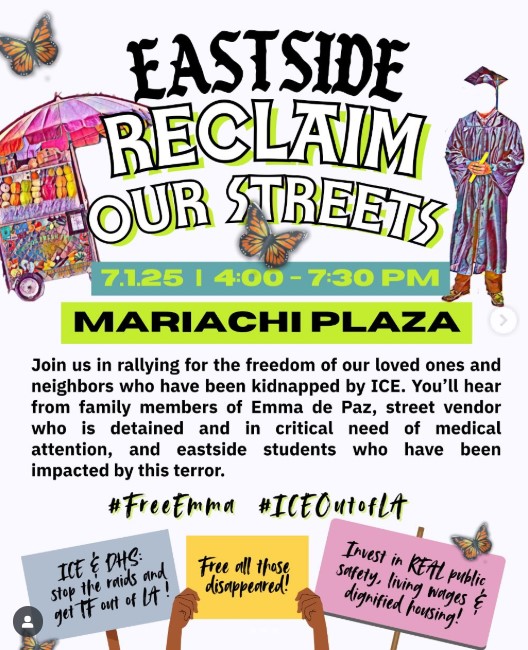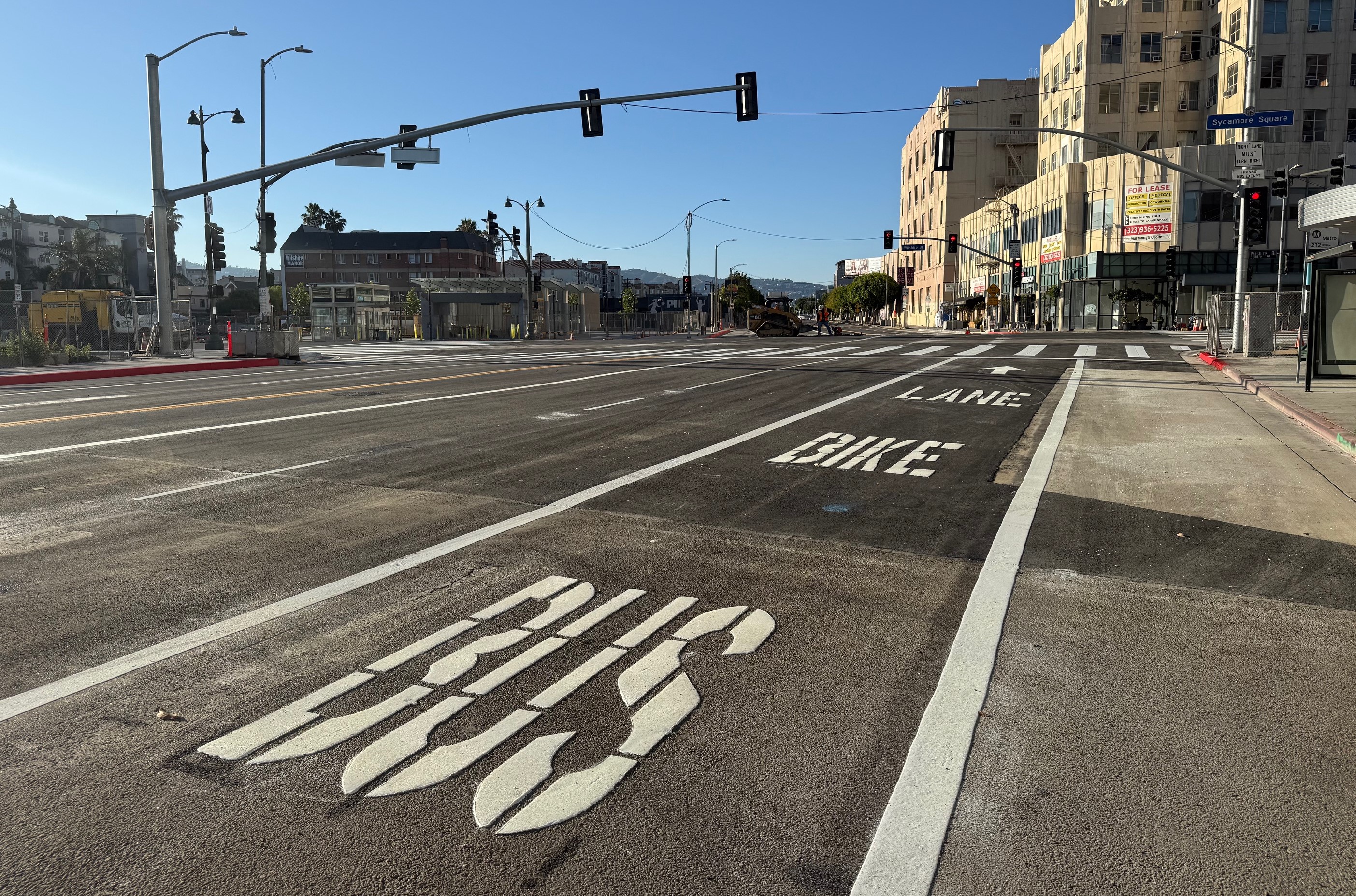Amid a global pandemic with disproportionate impacts on low-income communities of color, and the eruption of mass civil unrest, Metro created another source of anxiety for its majority Black and brown transit riders when it took unprecedented action to shut down service throughout L.A. County on May 30, effectively leaving thousands of riders stranded in the name of “safety.” To add insult to injury, the buses were then used to transport dozens of detained peaceful protesters to a holding area, which Metro claimed to be obligated to do. But transit riders and advocates saw this action as another clear example in which Metro closely aligns itself with police agencies like the LAPD.
From 2017 through 2022, Metro is spending $797 million (and possibly millions more in overtime pay) for law enforcement patrol and response on the region’s transit system through a multi-agency contract with LAPD, L.A. Sheriff's Department, Long Beach PD, and private security. Metro also has its own transit security officers. This 5-year contract is an almost 60 percent increase from the agency’s previous $500 million police budget, at a time when crime on Metro is going down.
Spending nearly a billion dollars on policing has come at the expense of transit infrastructure and service improvements, but more importantly, youth, Black and Latinx riders who make up Metro’s core riders have reported feeling less safe and secure due to increased police. Greater police presence on Metro has resulted in racial profiling, criminalization of poverty and often makes transit riders of color feel uneasy.
Protests across the US against police brutality and to call on local governments to defund police departments are having enormous impact and helping significantly shift how cities reimagine safety. In just over two weeks, the groundswell of support has already led some elected leaders to pledge to reduce police budgets or even dismantle their local police departments.
After weeks of mass mobilizations led by Black Lives Matter L.A. and a powerful presentation by the People’s Budget L.A. coalition to city leaders earlier this week, L.A. City Councilmember Herb Wesson proposed a motion to shift emergency response to non-violent calls for service, like mental health crises, substance abuse, and neighbor disputes, away from LAPD to unarmed trained professionals. L.A. Mayor Eric Garcetti also proposed to cut a meager percentage from LAPD’s $1.8 billion budget and divert those funds along with another $100 million into programs that support communities of color. But $250 million is a trivial amount and falls short of the real investments needed to uplift distressed Black communities.
As a regional transportation agency with one of the largest police budgets, Metro must take action to divest from policing and reimagine safety on public transportation. Armed law enforcement patrol should not be the default approach that Metro implements to respond to people experiencing homelessness or mental health episodes, or to enhance rider’s experiences. Police officers are not social workers or mental health professionals, and being first responders to service calls has often led to escalations and violent outcomes. Metro must expand its idea of who can provide safety and security, and consider alternative crime prevention measures through design and infrastructure.
There is evidence that alternatives to police on public transit are indeed viable and effective solutions. Off the Rails: Alternatives to Policing on Transit, a new report by UCLA urban planning researcher Ma'ayan Dembo, includes case studies on safety interventions implemented by transportation agencies in the US, Mexico and Colombia that do not involve law enforcement. These alternative interventions include social workers, transit ambassadors, elevator attendants, performance artists, and other crime prevention measures through design which provide security without law enforcement and help reduce riders’ fears. Her research finds that in many cases transit riders expressed feeling more safe when non-law enforcement workers were present.
The report looked at Metro’s partnerships with LAPD Homeless Outreach and Preventive Engagement (HOPE) and long standing homeless services provider, People Assisting The Homeless (PATH), to provide outreach and services to individuals experiencing homelessness and other challenges on Metro. The report found that PATH teams are more cost effective and have higher success rates than HOPE teams in providing meaningful services for people experiencing homelessness. Additionally, Off the Rails analysis of transit ambassador programs in the Bay Area and New York City found that programs like these provide the extra eyes and ears that help prevent crime, reduce operator assaults and prevent youth from entering the criminal justice system.
For a decade, Metro has shortchanged its customers by overspending on police, and underfunding critically needed increases in bus service, maintenance, and infrastructure, resulting in a 25% decline in bus ridership. Now with the COVID-19 outbreak, crime in L.A. has significantly decreased, further demonstrating that dollars spent on police could be better spent on improving transit reliability, scaling up social workers on transit, and piloting a transit ambassador program.
Metro must take heed of this historic moment of public outrage over systemic racism, abuse of power, and the failure of police to protect citizens. The agency must do right by its loyal riders who want community safety over policing. The nation has reached a juncture that demands a reimagination of safety. What is required is the rebuilding of cities that eliminates the need for police by redirecting the billions of dollars spent on police departments toward housing, education, job opportunities, affordable healthcare, mental health services, and fare-free transit. That is what keeps communities safe. Local government leaders and transportation agencies need to lean in to help create community safety together.
Mariana Huerta Jones is the Senior Coalition and Communications Manager with Alliance for Community Transit - Los Angeles (ACT-LA), a coalition of transit equity and housing justice advocates, working to improve housing stability and transportation options in LA. Follow ACT-LA online at @All4Transit and #PeoplesTransit.
